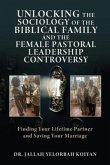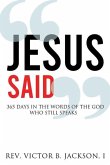A few years ago, my dad made an innocent comment that stunned me. He was a man in his mid-90s, and he revealed that he didn't believe much of the New Testament. He had not expressed this belief to me before. How could this be? My dad had been an elder in the Methodist church. He believed in God and Jesus, but he didn't believe all the Bible said about Them. I suspected the onset of dementia, but this wasn't his problem. He hadn't forgotten his religious background. As he explained his case for his belief, I began to understand his host of reasons: his parental upbringing, childhood church experiences, an inability to see God's intervention among human tragedy, moral failures by those claiming to be chosen by God, and the controversial theology of the Apostle Paul. He had been witness to hucksters who claimed to have the gifts of the Holy Spirit. When others talked about the Holy Spirit, he was always skeptical. Consequently, he never learned about the true Spiritual God or how the Holy Spirit affects people. As he was about to pass, he had little faith in Spiritual life. It didn't have to be this way if he would have only understood and believed the Biblical God. We have all had experiences which cause doubt about certain doctrines and theologies, but the failure to have faith in the Scriptural God can be very consequential. In the short term, it is stealing our joy and fracturing our country; but most importantly, it affects our eternal destiny. I discovered that my dad was not alone in his beliefs; there is a shifting trend. Those believing in the biblical God is shrinking while those who believe in a magical, mystical protector God is growing. Read about the essential, fundamental biblical doctrines most church attendees are missing that are causing the shift.
Hinweis: Dieser Artikel kann nur an eine deutsche Lieferadresse ausgeliefert werden.
Hinweis: Dieser Artikel kann nur an eine deutsche Lieferadresse ausgeliefert werden.








